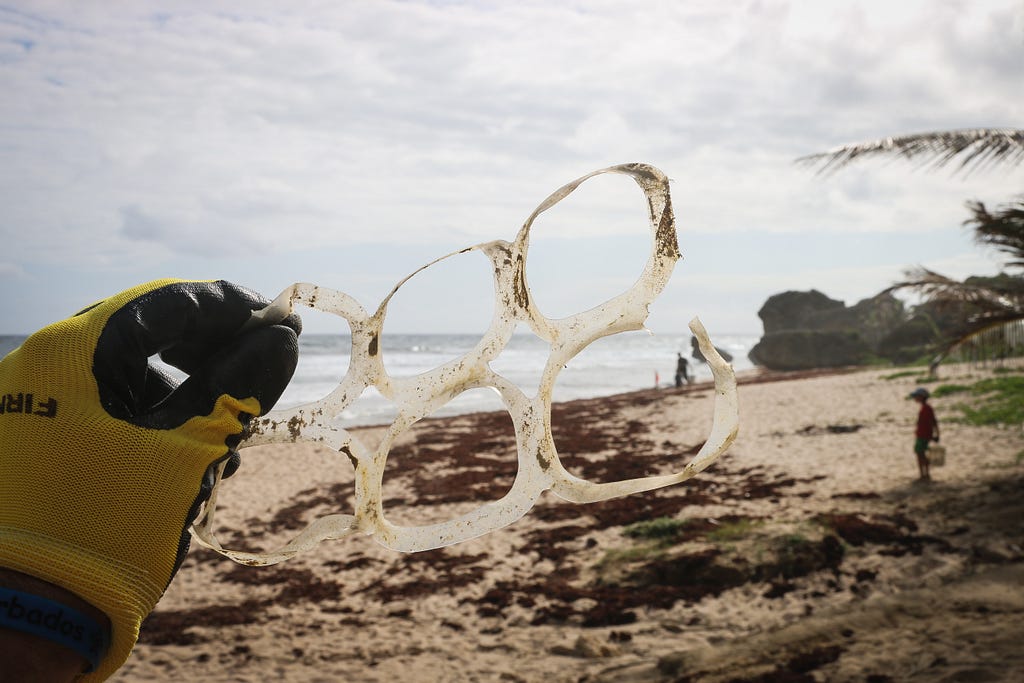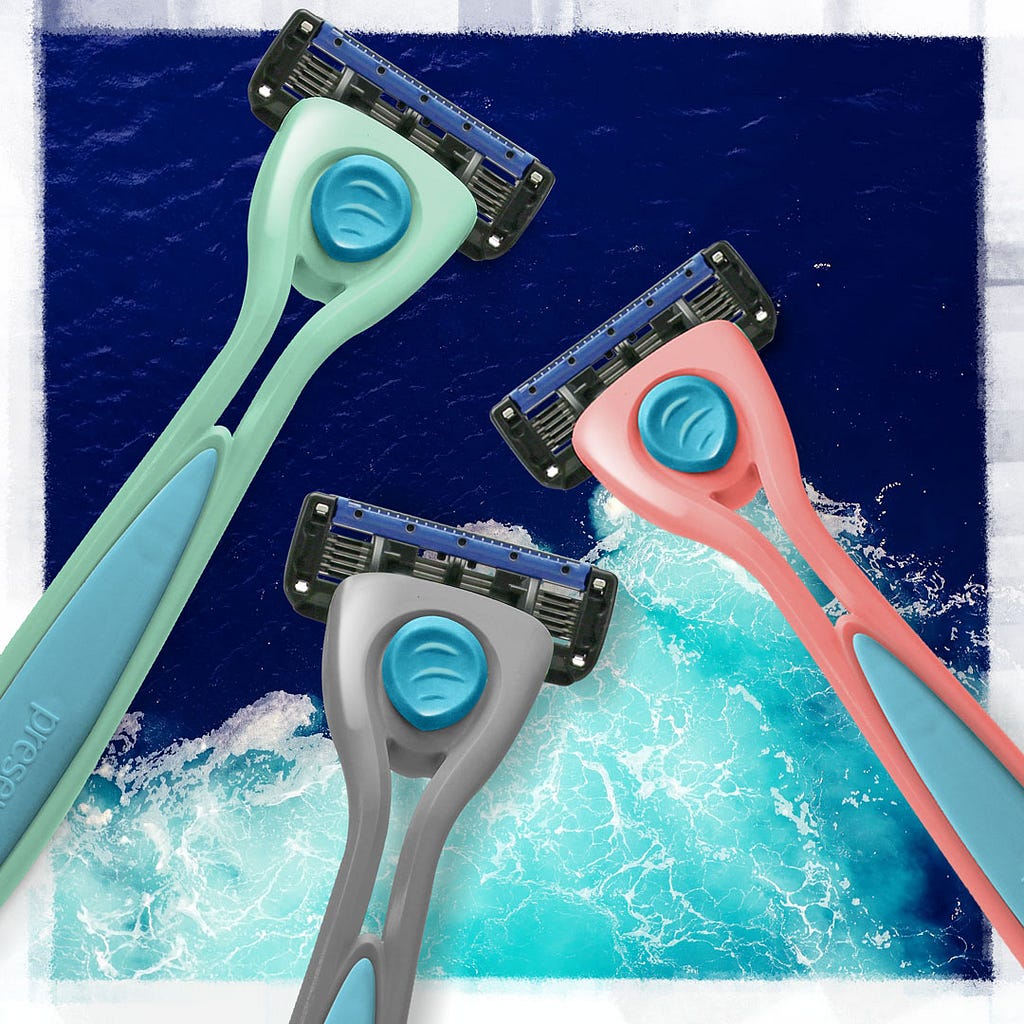Preserve’s Line of Recycled Products Goes Beyond Waste Prevention to Education on Environmental Issues
B Corp’s Mission Focuses on Environmental Initiative Awareness and Action, from Landfills to Ocean Plastic

Born from Eric Hudson’s idea to transform recycling materials into household goods, Preserve emerged as an early sustainability leader when the climate crisis got real. Now, after nearly a decade as a Certified B Corporation, the consumer goods company serves as a resource and partner for other environmentally minded businesses.
Based in Waltham, Massachusetts, Preserve works with U.S. manufacturing plants to create colorful toothbrushes and tableware from recycled yogurt cups and takeout containers. By keeping plastics out of landfills and oceans, the B Corp aims to lighten our footprint on the Earth.
While Preserve is a business founded with our planet in mind, Hudson finds it still has room for improvement on environmental initiatives. And, as the COVID-19 pandemic radically reshaped its production and distribution systems, the company worked with its existing partners for their help and support to keep the mission and business alive and thriving. Hudson and Deana Becker, director of stakeholder operations at Preserve, shared their thoughts about the company and its journey as a B Corp as part of the research for my upcoming book, Better Business.
An Honest, Transparent Review of Preserve’s Environmental Impact
Hudson says Preserve’s initial work on the B Impact Assessment — used to measure a company’s impact on workers, customers, environment, and community for B Corp certification — served as an eye-opener in several areas.
“We had ways of doing business, and we had guidelines, and an employee manual. There was a lot that I felt that the team knew that the team definitely did not know,” he says. “So, it was definitely enlightening for me to be like ‘OK, I thought this was pretty well communicated, but it wasn’t.”
Through that process, Preserve identified where it could improve communication and set new goals for its community impact. Becker sees the B Impact Assessment as a tool that provides a holistic look at the business as well as motivation for continual improvement.
“The process, in and of itself, is incredibly valuable for any organization, because it really is going through a lot of things that no one person is ever looking at on a daily basis,” she says. “It’s a really interesting process of getting different internal groups talking about these issues.”

While Preserve historically has scored well on the assessment’s environmental side, Becker says the company found it had room for improvement in other areas.
“Certainly, we can keep improving on the environmental side, but we’ve also seen there’s a lot more that we can do on the community side,” she says.
“The B Impact Assessment provides best practices and ideas for how to move some of those pieces forward. We’ve continued to look at things that we may have been doing in an informal way — and the assessment has had us institutionalize those things so they’re ongoing.”
Questions about family leave revealed one opportunity for improvement, she says.
“The assessment is competitive in a nice way, and it allows you to know if your answer is the bottom of the barrel or if you’re performing to the top,” she says. “We realized that our maternity and paternity leave was not nearly where we wanted it to be, and we noticed that we probably put people in situations that they didn’t want to be in, and we didn’t want to do that.
“So, to the best of our ability, we came up with a better policy. … It’s something that the B Impact Assessment helped push us to do.”
Creating a Network of Collaborative Partners Helps to Improve Resilience Through Crisis
While the assessment has a bit of a competitive feel, collaboration and partnerships are an important part of the B Corp community. “We’ve gotten to know these companies that maybe we would know otherwise, because of shared values, but the B Corp connection makes it easier,” Becker says. “The fact that we’re both B Corps is almost like a secret handshake.”
Hudson sees the community of potential partners as an opportunity for growth on several levels, from stakeholder practices to the bottom line.
“We have a penchant for partnerships to begin with, so the B Corp community is our closest platform for partnering with other companies, whether it’s marketing initiatives, social initiatives, or environmental,” he says.
As a longtime B Corp, Preserve also serves as a resource for entrepreneurs considering certification and or businesses wanting to discuss B Corp practices, Becker says.
“We just opened ourselves up to share our experience and said, ‘Hey, we’ll take the time. Ask us anything,” she says. “We’ve done it both with a very small, one-person B Corp, and we’ve done it with much larger potential B Corps, and it’s been great.”

For example, Preserve’s newest project, the Preserve Ocean Plastic Initiative (POPi), launched this spring with the help of B Corp Grove Collaborative, an online subscription platform for sustainable home products that helped get POPi off the ground through prepaid orders for the products. Using plastics found along coastlines and waterways, Preserve is creating POPi toothbrushes and razors and donating 25% of proceeds for those items to nonprofits working to stop the flow of plastic pollution — an estimated 8 million tons a year — from source to sea.
“In essence, they helped us develop and launch this product and program, which we’re extremely excited about,” Hudson says. “Grove supported POPi from its ideation stage, and we’re launching the products with them.”
“We’ve been lucky to have great manufacturing partners who are, in most cases, considered essential, so continuing to manufacture razors is not an issue,” Becker says. “It’s an example that positive things continue to happen in the world.”
COVID-19 has meant other business challenges for Preserve, as sudden shutdowns reduced demand for many products in its food service division, which sells cutlery and other items to universities, convention centers, health care facilities, and clients including Whole Foods Market.
“We had to take drastic action,” Hudson says, noting that as a B Corp the company considered how its actions would affect workers, customers, community and environment, as well as the business’ bottom line. “We would never change our sustainability initiatives to cut costs. That would go against everything that we created this company for.
“We’ve been transparent about our financial situation,” he says. “Every partner that we work with, whether they’re B Corps or not, has principles that are aligned with ours. All of them were incredibly supportive of the changes that we needed to make to reduce our expenses.”
Outward-Facing B Corp Benefits
Workers and customers are more than stakeholders for Preserve: They’re also areas where B Corp certification serves as a benefit for the company.
Knowing that Preserve is a B Corp attracts purpose-driven job applicants, Becker says, and awareness of what certification means is growing, especially among younger workers.
“Some of our best candidates come to us as people who are saying, ‘I feel very strongly about working for a B Corp.’ And that has been fantastic,” she says. “In the business schools these days, we find that many people are very well in tune with what a B Corp means.”
Customers also are recognizing that products on the shelf with the B Corp logo come from companies that value more than profit, Hudson says.
“The recognition’s happened where it’s another reason that Preserve is different, that Preserve is in that bucket of companies that are pushing the envelope to use business as a force for good,” he says. “We’re still collaborating, working with other B Corps to build the recognition of the B and what it stands for. Maybe there’s a day in the future where it really helps the mass market consumer be able to decide between one product or another, where everything else is equal, but they can correctly say, ‘I want to do business with B Corps.’”
B the Change gathers and shares the voices from within the movement of people using business as a force for good and the community of Certified B Corporations. The opinions expressed do not necessarily reflect those of the nonprofit B Lab.

Preserve’s Line of Recycled Products Goes Beyond Waste Prevention to Education on Environmental Issu was originally published in B The Change on Medium, where people are continuing the conversation by highlighting and responding to this story.